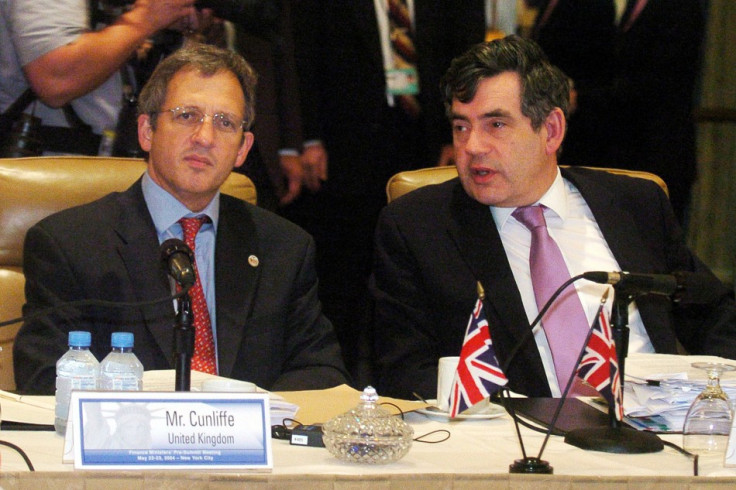BoE Appoints EU Diplomat Jon Cunliffe as Deputy Governor For Financial Stability

Britain's central bank has appointed Sir Jon Cunliffe as its deputy governor with the responsibility for financial stability with effect from 1 November.
Cunliffe replaces Paul Tucker, who announced his resignation from the post.
Cunliffe will also serve the Bank of England (BOE) as a member of the bank's Court of Directors, the Financial Policy Committee, the Monetary Policy Committee and the Board of the Prudential Regulation Authority. He will also represent the bank on a number of national and international bodies.
"Cunliffe will play a crucial role in ensuring the safety and stability of the UK's financial sector," the central bank said in a statement.
"He is an outstanding public servant, with vast experience of financial and economic policy," the BOE governor Mark Carney said, commenting on the appointment.
"It is both an honour and an exciting challenge to be joining the bank now, as it takes on formally its new role and responsibilities for financial stability," Cunliffe said.
Profile
Cunliffe has been the UK's permanent representative to the European Union since January 2012, covering policy issues including negotiations on the banking union and a number of financial services dossiers.
He was advising the prime minister on Europe and global economic issues between 2007 and 2011. In this role, he headed the country at the G20 and the G8 summits. During the 2009 UK chairmanship of the G20, where the post-crisis international financial regulation strategy was agreed, he was the government "Sherpa".
Prior to this, he served in a number of roles at HM Treasury and in the government. He had been Second Permanent Secretary at HM Treasury with responsibility for the directorate that covered macroeconomic, international and financial sector policy.
He also served as managing director of the Finance Regulation and Industry Directorate at HM Treasury.
Responses
The non-internal appointment at the central bank has received mixed response from top officials and experts. Despite being a career civil servant, Cunliffe was a key figure credited with dealing with the 2008 banking crisis.
"He brings an important European and international perspective that will be vital in ensuring that the Bank of England can shape both the UK and international financial systems so that they effectively serve the needs of the real economy," Carney said.
He will help ensure "the success of the bank's enhanced responsibilities for financial stability," according to Chancellor George Osborne.
"His deep experience in engaging with the European Union will be instrumental in ensuring Britain's financial services are well represented and protected," Osborne added.
James Barty, head of financial policy at the Policy Exchange thinktank, called the appointment as "a missed opportunity".
"After the imaginative appointment of Mark Carney it is disappointing that the government has appointed a career civil servant as deputy governor for financial stability. The financial crisis demonstrated that knowledge of financial markets is vital for any central banker," Barty said.
© Copyright IBTimes 2024. All rights reserved.






